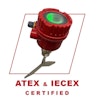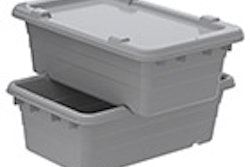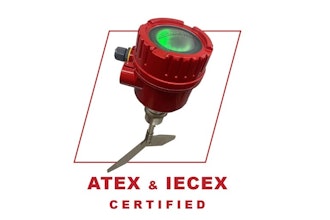This article first appeared in the October 2013 issue of Food Manufacturing.
Stop us when this sounds familiar: your food or beverage company faces myriad challenges with its current software, comprised of a mix of accounting systems with some inventory control and many spreadsheets. C-suite executives can’t get adequate reporting on financial performance, procurement is buying on “gut feel,” sales representatives fight over product allocated to other customers and production management spends their day reacting to emergency jobs. As many executives would say, “This is no way to run a business.”
If you search the Internet for potential enterprise resource planning (ERP) solutions, you’ll find more than 100 applications that claim to be perfect for your business needs. But manufacturers and distributors in the food and beverage industry have their own unique set of challenges that need to be successfully addressed before investing large amounts of capital into a new solution suite. Thinking about how process manufacturing is different than discrete manufacturing, FDA regulations and compliance, and expiry management are critical success factors to selecting and implementing the right solution.
Process manufacturing is different than discrete manufacturing
While discrete manufacturers need solutions to assemble bills of material using bills of operation, labor cost rollups and subassemblies, the demands on process manufacturers are quite different. Many finished goods depend on recipes and yields that must use an entire batch of raw materials. Instead of producing to a quantity of finished goods that satisfies demand, these manufacturers often have to develop a production order that consumes a source container of raw materials.
Additionally, in discrete manufacturing, the number of components being consumed in a finished good is relatively fixed, whereas in process, there are tolerances in how the raw materials are blended to make a finished good. To further complicate things, inventory management is measured in pounds and liquid units requiring volumetric measurements and tools. Finally, finished goods in the process manufacturing world are unable to be disassembled and returned to raw components. Can you imagine trying to disassemble 16-ounce bags of trail mix to their original components? Many ERP solutions are not designed to handle these nuances even though the application provider will be happy to “make it work.”
Regulations and compliance
Lot traceability and product recall have become daily challenges in the food and beverage space, and managing them efficiently is critical to ongoing operations. Understanding where raw materials were sourced and stored, in which batch they were used, and to whom they were sold is critical when the FDA or USDA are involved. You can’t simply apply a lot number to the finished good and leave it there. Intelligence behind each raw component lot is critical, as that’s where the recall would likely be sourced. A single raw material lot could span tens or even hundreds of finished-good lots, and responding quickly to a recall is critical. Even if your organization never has to perform a true product recall, national regulatory agencies will periodically require you to do “mock recalls” to ensure your customer channel is protected. Identifying solutions designed to handle these requirements would be very important prior to making a software investment.
Expiry management
Anyone who went to college and took basic accounting courses is familiar with First In/First Out and Last In/First Out (FIFO and LIFO), but there are unique inventory management requirements in the food and beverage industry like First Expiry/First Out (FEFO). Some ask why a FIFO inventory management system can’t handle rotating stock effectively like it does in other manufacturing environments. The answer is due to product expiration management.
Simply producing a finished good and assigning an expiration date to the good is possible in some cases, but in others the expiration assignment needs to be sensitive to the earliest expiration of a raw component. If one of the components is set to expire by March 2014, then the entire finished good will likely need to be set with the same expiration. There are common cases where earlier production of a finished good could expire months later than a more recent production of the same finished good due to component dates, so it’s critical to sell the earlier expiration first.
Special consideration also may need to be given to handle numerous tiers of expiration due to sales channel requirements. A single finished good could carry a standard expiration date as well as a distribution channel date since many customers require a minimum of 6-12 months of remaining product life to accept delivery of the finished goods. Having control of how to respond to these dates can be the difference of selling at full price, discount price (short life) or destroying the product at a loss altogether.
In Conclusion
Preparing for the next level of growth is an important consideration that will require significant company resources. Deciding not to act is a critical mistake, but acting with inadequate information can prove to be equally damaging. Selecting the right solution requires thought around your unique business requirements, competitive bidding for potential solutions and a partner who can help you objectively evaluate the entire process. Simply contacting software companies to help you through the process eliminates much of the objectivity and negotiation from the process. It’s like that old saying: “When all you have is a hammer, then every problem looks like a nail.”
Jeff Mengel leads Plante Moran’s food and beverage industry practice. Craig Zampa specializes in enterprise resource planning (ERP) including evaluation, integration, enhancement and implementation. For more information, contact [email protected] or [email protected].























